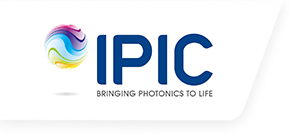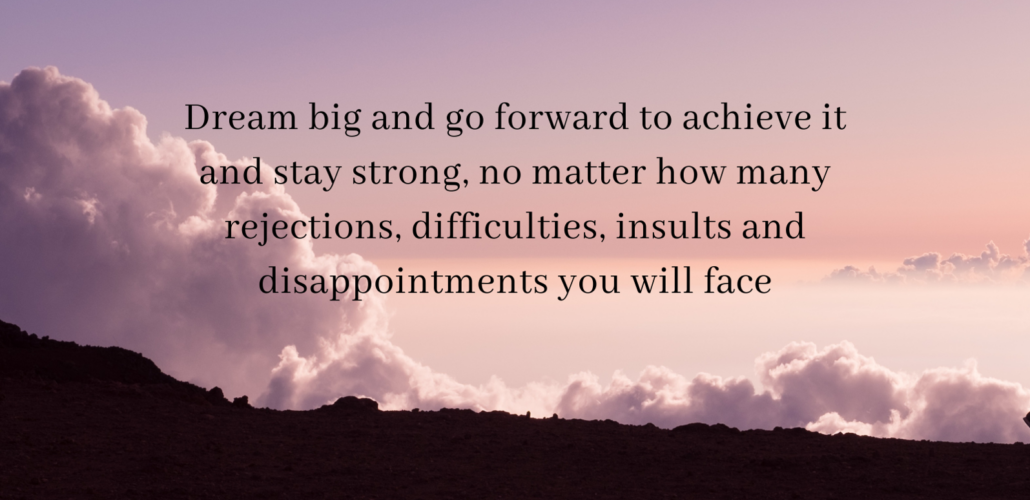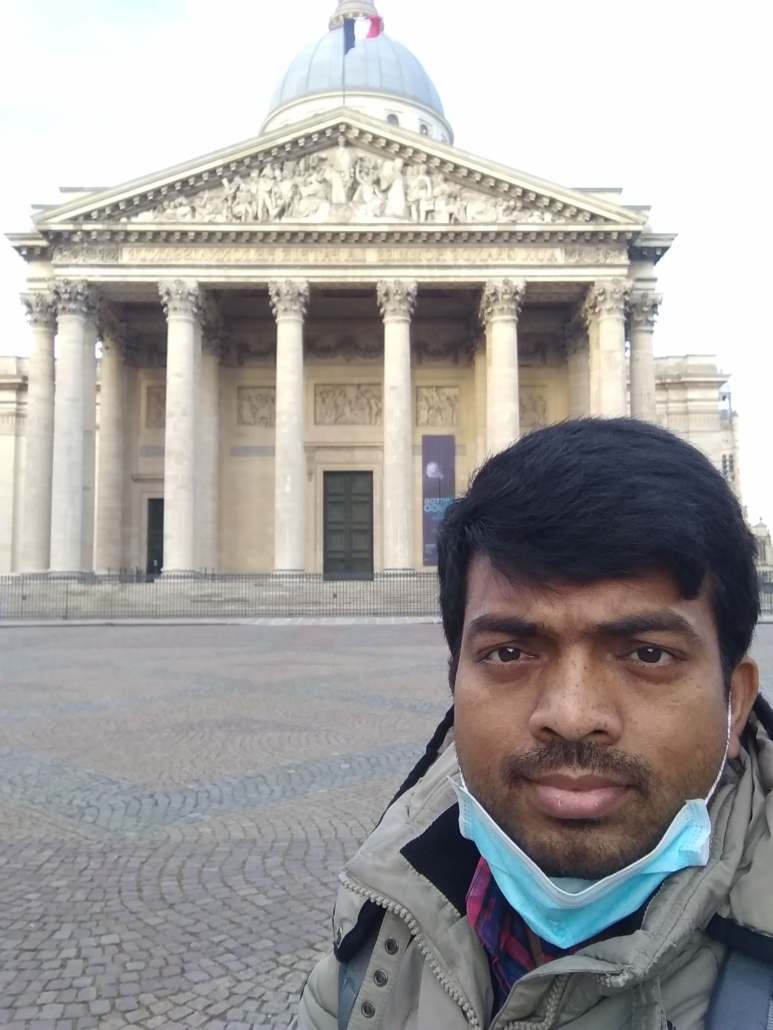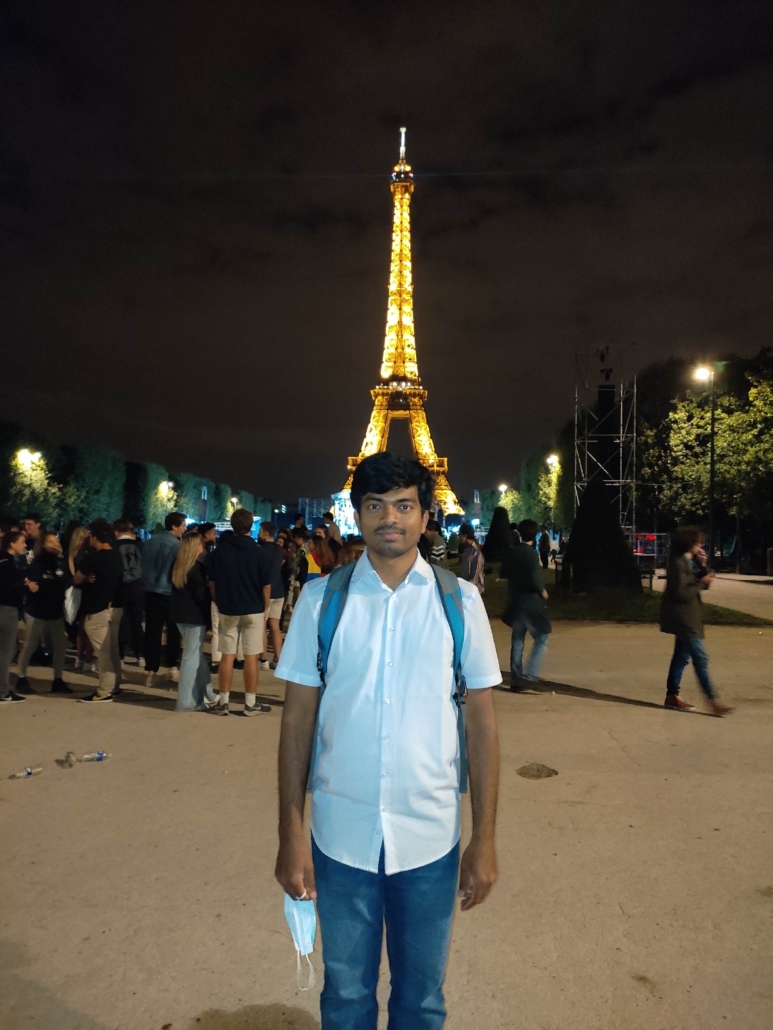My name is Vadde Ramu born and brought-up in India currently working as Sparkle IPIC Postdoctoral fellow at Dublin City University.
In school /college I studied Mathematics, Physics and Chemistry as major subjects. While I was studying in school I was not fully aware that I am going to be a chemist in the future. There was no one around to guide me or nurture my career. My parents thought I was not very good at studies during my childhood and they thought that I would not continue my higher education in my future.
My college chemistry lecturers inspired me. I have decided in my second year of bachelors to pursue my career in science and to do Ph.D. in chemical sciences. The interest towards chemistry was ignited during my master’s degree in bioinorganic chemistry. My Chemistry Professors inspired and encouraged me to pursue my career in chemical science. On top of that the biography ‘Wings of Fire’, a life history of Dr.A.P.J. Abdul Kalam a rocket scientist, inspired me a lot to set and achieve my goals in my scientific career.
It was not an easy process to become a chemist I am today. I have passed through many hurdles and obstacles in my scientific career. I was born in a small village (Vidapanakal) where most people had never been to school. No one in my family has a degree or been to school before. As I have strongly determined to obtain my Ph.D. I have travelled nearly 700 km distance to complete my master degree in Andhra University, Visakhapatnam, India. I was the only person in my village to travel such a long distance for higher studies. Many of my neighbours discouraged me to travel such a long distance for studies back in the year 2007 when there were no mobile phones when I wanted to talk to my parents.
After completing my masters, I applied and got Ph.D. opportunity from the Council of Scientific and Industrial Research Lab (CSIR-CSMCRI) Bhavnagar for which I had to move to North West State in India called Gujarat in 2010. I also got an opportunity to work in University of Sheffield, U.K. in Prof. Jim Thomas’s group for 3 months during my Ph.D. in UKIERI project. While there, my doctoral supervisor shifted his lab to another CSIR lab-National chemical Laboratory (NCL) in a new city called Pune. Eventually, I relocated to a new city in the middle of my Ph.D. along with the research group to pursue my scientific degree in 2016. I got postdoctoral research offer from Germany to work for 1.5 years in the research group of Prof. Alexander Schiller at University of Jena. He gave me the freedom to design my own research problem, collaborate with anyone I was interested in and come up with solutions. I have successfully published a scientific article as corresponding author. I enjoyed the most that the scientific freedom my professor gave me during my tenure in his research group. This work was published on the cover page in the Chemistry European Journal.
Then I had a 6 months career gap in my scientific journey, I was not getting any chance to continue my research but I did not stop there and kept applying for different research groups in Europe. One fine day I got email from my second postdoc supervisor Prof. Sylvestre bonnet to continue my postdoc research in his group with the funding he obtained on proof-of-concept grant from the ERC. During my postdoc stay at Leiden University I was so excited to work with the future potential drug TLD1433 that has cleared phase-I clinical trials for Non-Muscle Invasive Bladder Cancer (NMIBC) Refractory to BCG which is now in phase-II trials. I have learned the most awaited cell culture technics in my scientific career in his group and published several co-author papers by collaborating within and outside of his research group. I was given a chance to present my research in international conferences such as IMBG2019, France, and CHAINS 2019 Netherlands.
Next I moved to Sorbonne University in Paris to work on protein-protein interaction inhibition studies using small peptide linkers conjugated to Re-metal complexes. I was simultaneously writing research grant applications like Sparkle, Marie-Curie individual fellowships which go successfully funded and today I am working on Self-referenced Ruthenium/Iridium Complexes for Sensing Intracellular O2/pH using Resonance Raman Imaging. I am currently working in the research group of Prof. Tia keys as Marie-Curie Postdoctoral Fellow at Dublin City University. I have been enjoying the research moves throughout the Europe (England, Germany, Netherland, France and Ireland) and working in the synthesis lab and testing the compounds on cells for various applications like sensing oxygen, monitoring pH, testing cytotoxicity, localisation and cellular uptake.
I would always say to myself and advice someone to ‘Dream big and go forward to achieve it and stay strong, no matter how many rejections, difficulties, insults and disappointments you will face’. At least at the end of your journey in achieving your goals, you will be confident and self-satisfied about what you did. I am confident that one day when you look back you will be surprised to see yourself that you would have achieved what you believed in and what you aimed for. While I was studying my bachelors back in 2003-06, I was inspired reading in the chemistry text books about Madam Marie-Curie and her family got 3 noble prizes for their scientific discoveries. Since then, I was dreaming to work in Europe (was dreaming to see Eiffel Tower). It might be a coincidence or may be a wonderful thing happened in my life that I have worked at the University of Sorbonne, l’Ecole Normale Supérieure 24, rue Lhomond, near Pantheon 75005, Paris very close to the lab where Marie-Curie has done her research. In this digital era this may looks silly but it was my dream has come true which excites me more when I look back. Today, I am working on a project which is sponsored by the Marie Skłodowska-Curie Actions. What more is needed to prove that my dream has been real today. I believe still there is a long way to go…
Sparkle has received funding from the European Union’s Horizon 2020 research and innovation programme under the Marie Sklodowska-Curie grant agreement No. 847652 and from Science Foundation Ireland.
